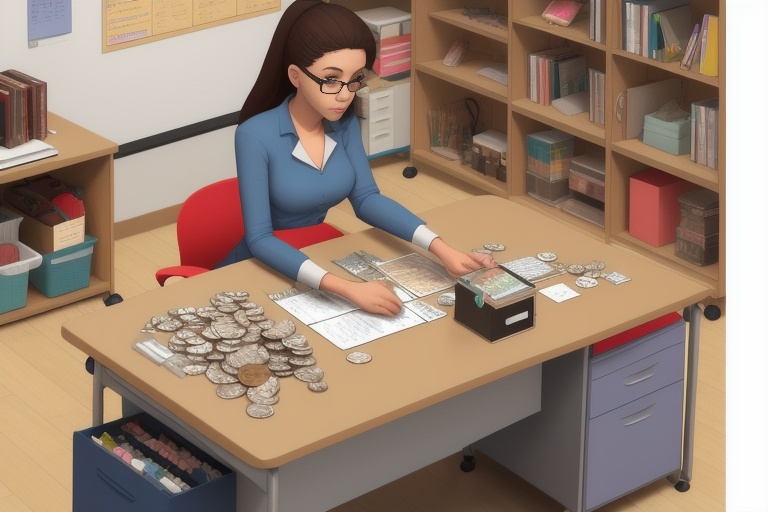As the executor of an estate, you may encounter the responsibility of handling and selling a coin collection. The task can seem intimidating, particularly if you're not familiar with numismatics, the study of coins and their values. This article is designed to equip you with the knowledge to navigate this process efficiently and maximize the value of the collection.
As the executor of an estate, you may encounter the responsibility of handling and selling a coin collection. The task can seem intimidating, particularly if you're not familiar with numismatics, the study of coins and their values. This article is designed to equip you with the knowledge to navigate this process efficiently and maximize the value of the collection.
Understanding the Basics of Coin Collections
During the Great Depression, it was common for people to amass collections of U.S. silver dimes, quarters, half-dollars, and dollars, known today for their 90% silver content. While not necessarily rare, these coins hold value due to their precious metal content. Coin collecting was also a widespread pastime among "The Greatest Generation," which means estate collections might include rare or numismatic coins. Additionally, you might come across bullion coins made of gold, silver, and platinum, prized for their metal content rather than historical or collectible value.
Step 1: Assess and Organize the Collection
The first step is to discern the nature of the collection. Was it amassed by a serious collector, or are the coins primarily for investment? Rare and valuable coins are often stored in coin albums, holders, or have been certified by a recognized grading service.
It's important to avoid cleaning the coins, as this might cause irreversible damage and reduce their value. Preservation is key, as original, unaltered coins are more desirable to collectors and investors.
Sorting the collection by denomination and coin type is advisable. For instance, place all dimes, quarters, and dollars together in their respective categories. Then sub-categorize by the specific coin types within each group. This sorting process will aid in understanding the collection's scope and directing you to the best options for liquidation.
Step 2: Educate Yourself About Coin Valuation
Even without numismatic expertise, educating yourself about the factors influencing coin values is pivotal. The year of minting, origin of the coin, and its condition can greatly affect its worth. Resources such as "The Official Blue Book: A Handbook of U.S. Coins" or the "Blue Sheet" from Coin Dealer Newsletter can provide approximate values, while websites like Wikipedia.com can inform you about mintage figures of U.S. coins.
Step 3: Choosing a Reputable Coin Dealer
The key to a fair transaction lies in partnering with a reputable coin dealer. Recommendations from fellow collectors, estate attorneys, or members of the collecting community can be invaluable. Dealers should have a longstanding presence in the market, appropriate credentials, and positive client feedback.
Consider obtaining appraisals from multiple dealers, understanding their fee structures, and ensuring the offers are competitive and equitable.
Step 4: Seek Professional Appraisal
For larger or more high-value collections, engaging a professional numismatist or coin appraiser can be worth the investment. They can offer a detailed assessment of the collection and assist with identifying counterfeit or altered coins, ultimately aiding in achieving the maximum value for the estate.
Step 5: Document and Insure
Maintain meticulous records of the collection, including photographs and detailed descriptions of the coins, which serves as evidence of the collection's content and condition in case of any loss or disputes.
Insuring the collection is also a prudent step. Either add it to an existing valuable items policy or seek specialized coverage from a provider familiar with insuring coins.
Maximizing Sales and Avoiding Pitfalls
When separating the valuable coins from the common ones, information like coin quantity or weight can streamline the evaluation process for dealers. Providing dealers with specifics, such as the types of coins in your possession, allows them to better prepare their offer.
Remember that grading companies might charge a fee to authenticate and grade your collection. While this can increase the coins' appeal, weigh it against the potential cost.
Consignment and Direct Sale Options
If the selling urgency is low, consider consigning the collection to an auction house specializing in coins. This route might yield higher prices, but involves fees, commissions, and potential shipping expenses.
Alternatively, direct sales to a coin dealer are faster, though they may offer less than the price guides due to reasonable dealer margins.
Online Sales and Reaching Wider Markets
Online auction platforms, such as eBay, can widen your potential buyer pool. However, selling online requires you to photograph and list each coin, account for associated fees, handle shipping, and engage with customers, which can be time-consuming and less straightforward.
Seek Expertise When Needed
For those unfamiliar with coins or who require assistance in evaluation, reaching out to specialists like Atlanta Gold & Coin Buyers for a free appraisal can provide clarity on the collection's value.
In conclusion, selling an estate coin collection demands a thorough understanding of the contents, a diligent approach to organization, and navigating the sales landscape with informed judgment. By meticulously assessing, documenting, and researching the value of the collection, you can confidently engage with buyers, whether through dealers or auction houses, to realize the best possible return.
Look forward to the forthcoming Part 2, where we delve into identifying valuable coins, understanding valuation factors in depth, and tips for adapting to the current market for a successful selling experience.
Information for this article was gathered from the following source.




